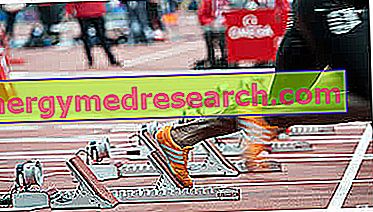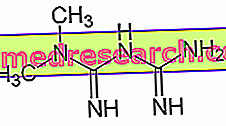By Dr. Luca Taverna - Mental Coach and training
All of you will have noticed, either personally or on an athlete of your reference, how there are days in which all the gestures (even those considered most difficult) are easy, with impressive effectiveness and days in which, instead, you can't to do anything that seemed so simple.
Let's think for a moment.
Can my technical knowledge of gestures be changed overnight? Can I have deleted moving parts? Can I find myself, from one day to the next, in a state of physical form so different and penalizing? The experience of athletes or in any case the logic will lead you to answer all previous questions with a nice NO.

Body, mind and emotions are inextricably linked parts: this is why it is not enough to train only the physical and the technique to achieve true personal well-being and excellence.
Even the mind and emotions want their part! These can act as a true catalyst and accelerator of results or be the most drastic of brakes: the trick is "knowing how to use them to our advantage!".
Training intended as a process aimed at improving sports performance has, up to now, considered two main aspects, the technical-tactical one and, later, the physical preparation of the athletes. The training plans, the annual and multi-year schedules, were elaborated by putting the athletes' technical and tactical preparation in a central position, as a primary objective, raising these two components to unique and indispensable factors for obtaining the best achievable performance.
In recent years, the sports movement has realized that an athlete's optimum performance cannot be based only on the baggage of technical and tactical knowledge, but that optimal physical preparation is the best prerequisite for optimizing performance.
To develop this trend here is the arrival of athletic training specialists and their inclusion in the technical staff of most clubs. Since the 1980s, there has therefore been a specialization of functions and a necessary division of tasks between the coach, who plans the technical-tactical work, and the athletic trainer who takes care of developing the organic conditions for the achievement of maximum performance.
A further in-depth analysis of the sporting performance highlights with disconcerting clarity that the performance model of team games but also of individual sports, was not represented by a combination of factors but rather by a triad that can be represented graphically in this way:
The mental aspect of sports performance is precisely the element that closes the triangle of factors that determine the success of a training program.
Let's start with what is the ultimate goal of mental training: train the abilities and potential of our mind in order to express the full potential of the individual athlete or the entire team to levels of excellence, enhancing and enhancing their strengths and going to counteract the areas of weakness with the right attitude and the right mental preparation.
This being the case, it is therefore evident that adequate mental preparation reaches its maximum result when it joins and engages in an equally good and accurate technical-tactical and physical-athletic preparation.
The three components all play a fundamental role and, if the objective is that of maximum performance, none can ignore the others and the one completes and enhances the other. Just as every single constituent part of the service performs a "teamwork" to achieve the final objective, so we believe that the role of the Mental Coach within the staff of a company should be interpreted: a professional who works with the team and with individual athletes, who move in a synergistic way, coordinated and aligned with what was decided and agreed with the technical part.
In any case, one thing should be emphasized, the key word in "mental training for sportsmen" is "training"!
There are no tricks, no magic or magic formulas, all the tools we use in athletes' mental preparation work and work with concretely measurable results if used and trained with commitment and continuity! As well as a person who has never done sport, if followed by a good coach whose indications follow, improves his technical skills; as well as a person who has never done physical activity, if followed by a good athletic trainer whose instructions he follows, improves his strength and endurance skills; so any athlete who has never consciously trained his mind, if followed by a good Mental Coach whose directions he follows, will improve his performance ... and this is always true, inevitable and natural! According to research conducted by the British Psycological Society (Concentration Skills Training in Sport - Greenlees and Moran) in fact mental training (done in a professional way) can increase sports performance results by over 50%.
Ok, so great ... so? What is it about? What does a mental coach actually do with athletes?
First of all, when we are contacted (in the case of individual athletes) the first thing we do is set the objectives: "Where do you want to go? What do you want?" are the first questions you ask. After understanding the objectives (which in general, speaking of athletes, are linked to improving performance, managing moods effectively, improving concentration and attention, the ability to give the maximum in decisive moments, to the ability to improve the quality and intensity of the performance, both in training and in the competition, to the development of one's personal leadership, to the maintenance of high levels of motivation, to the management of stress, to the improvement of a technical gesture, to the overcoming of some blocks that have been created for some particular reason, etc.), we analyze the strengths and what eventually prevents the sportsman from expressing his maximum potential (it can be fears, insecurity, lack of conviction, loss of concentration, stress, etc.).
At this point we build together with him the most suitable mental training path based on the goals and times we have chosen ... already, just as a good athletic trainer would do to help his sportsman express his best physically, or as well as would do a good technician to make him compete in the best way.
If we work with the team as a whole we are concerned, for example, with enhancing individual individuals within a team context; develop the skills of working in a tight and cohesive way; improve communication and collaboration among athletes, with a view to achieving common, agreed and shared goals.
If instead we work directly with coaches, and more and more often "enlightened" technicians ask us to support them individually to improve and enhance their skills, we can give them support, for example, in the use of even more effective communication; in improving their motivation skills; in contributing to an increase in their group management skills; in the profiling of athletes.



